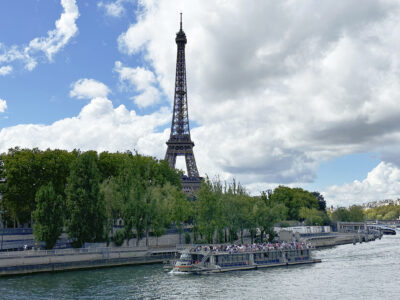
I love Paris! It’s such a beautiful city. There is so much to see and do and it’s easy to get around by walking or taking the Metro. This year I joined a small tour group to visit Paris, Giverny, Versailles, and Normandy.
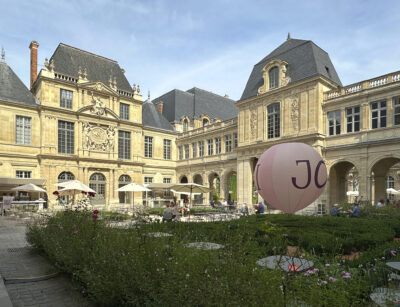
I arrived a few days early to enjoy some time to explore on my own. I arrived on Monday, August 24th. Armed with my “Navigo” Metro pass and sturdy walking shoes, I visited small lesser-known museums.
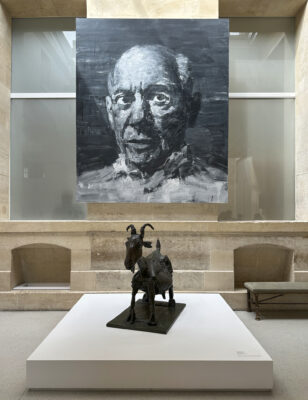
The Musee Carnavalet had interesting artifacts and exhibits on the history of Paris. The Musee Cognacq-Jay contained the art collection of the founders of La Samaritaine department store. The Picasso Museum was excellent and exhibited the artist’s works chronologically.
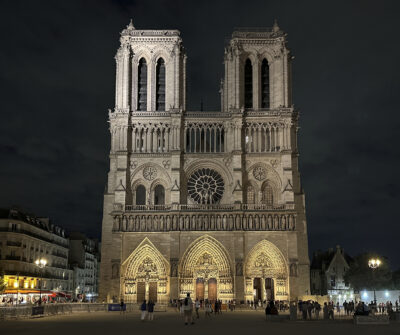
Notre Dame Cathedral reopened to the public last December after five years of restoration following the devastating fire in 2019. I had ordered tickets online for an organ recital one night. It was a wonderful experience to hear the sound of the organ fill the magnificent space of the cathedral.
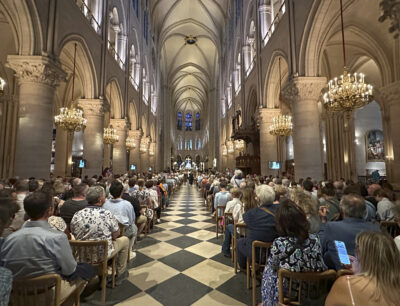
The Musee National des Arts Asiatiques-Guimet has one of the largest collections of Asian art outside Asia. I especially enjoyed a special exhibit of black & white photographs taken in Asia by Michael Kenna.
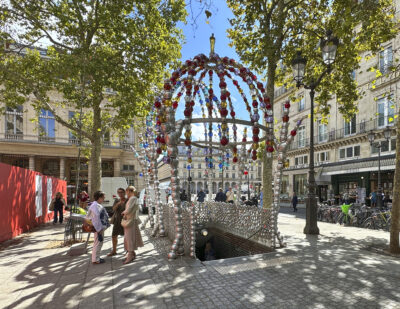
The Musee du Quai Branly-Jacques Chirac is housed in a modern building and featured indigenous art and culture of Africa, Asia, Oceania, and the Americas. There was a lovely peaceful garden outside the museum where people were eating picnic lunches.
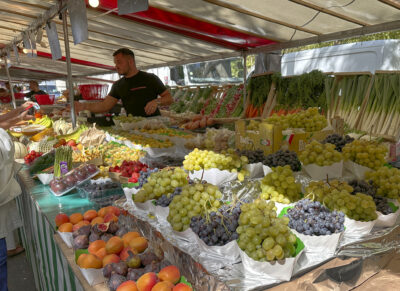
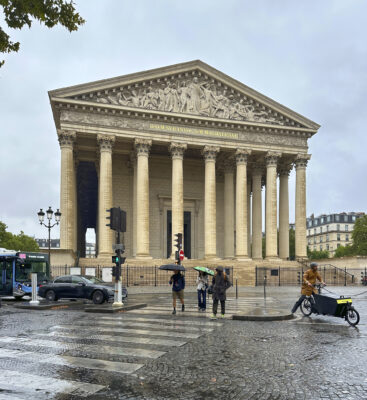
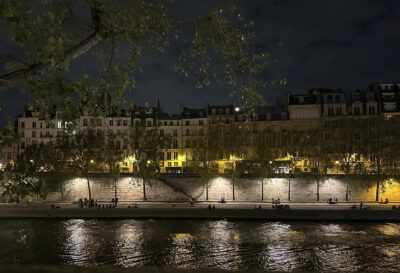
My time alone passed quickly and on Friday morning, I took a taxi from my little Parisian hotel to the tour group’s hotel in the residential 17th Arrondissement. After everyone checked in, we all took a Metro to the Petit Palais on the Champs-Elysees.
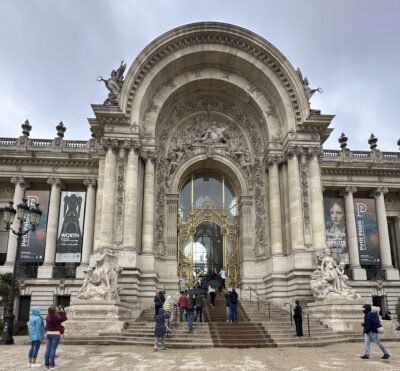
Built in 1900 as an exhibition space, the Petit Palais has an interesting collection of paintings and sculptures. The building is magnificent. It is one of the municipal museums of the City of Paris so it has free admission.
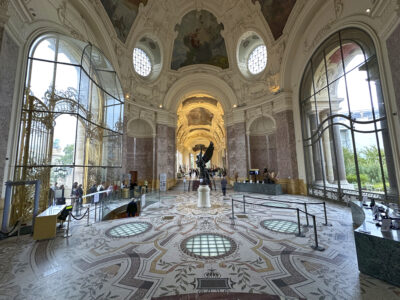
Part of any visit to Paris is eating good French food at a variety of interesting restaurants, bistros, brasseries, and cafes. Our small group of congenial retirees enjoyed several French restaurants.
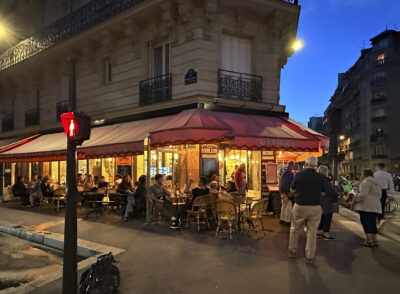
The next day, we enjoyed a bus tour of Paris and we saw all the famous monuments, buildings, and historic landmarks of Paris. It is a charming city with impressive architecture and lovely green parks.
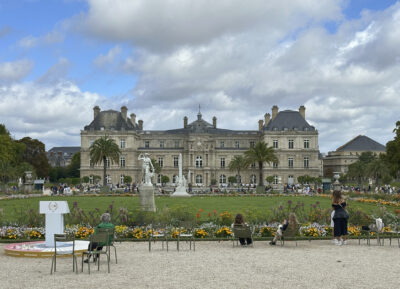
Despite the crowds of tourists, it was fun to visit the D’Orsay Museum. The former Beaux-Arts railway station has an excellent collection of Impressionist paintings.
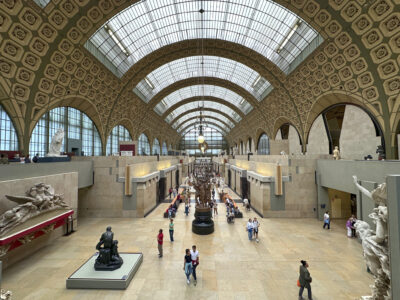
We also took a day trip to the magnificent Palace of Versailles. Originally built as a hunting lodge in 1623 by King Louis XIII, the chateau and gardens are a UNESCO World Heritage Site.
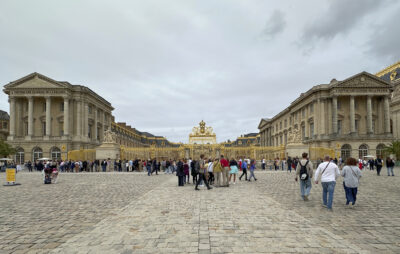
We toured the Queen’s Apartments and several other large ornate rooms. The Treaty of Versailles which formally ended the First World War was signed in the impressive Hall of Mirrors.
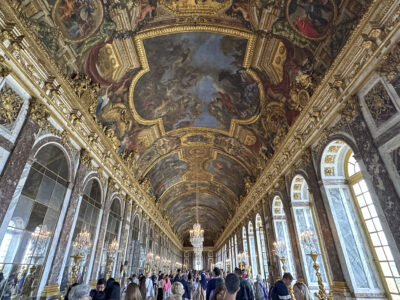
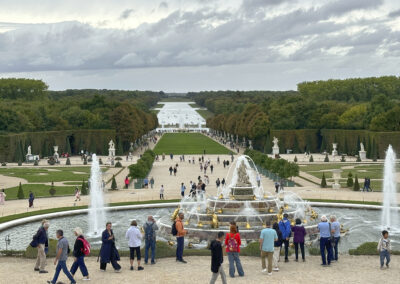
We had timed tickets to see the interior of Notre Dame Cathedral. A thousand years of grime, dirt, and smoke on the walls of the cathedral were cleaned during the restoration to reveal light gray/white walls.
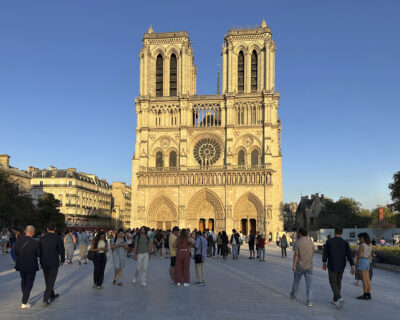
Sainte-Chapelle is a masterpiece of French-Gothic architecture commissioned by King Louis IX in 1248. Its most striking feature is the 15 vast stained glass windows depicting biblical scenes.
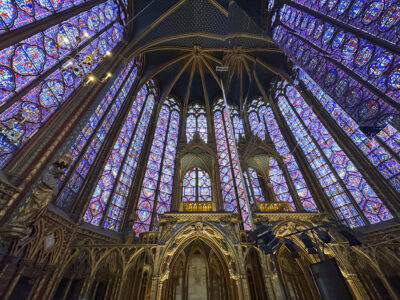
Of course, no trip to Paris is complete without a visit to the impressive Musee Louvre. It is the largest and most visited art museum in the world. It was originally a 12th century fortress and later became a royal palace.
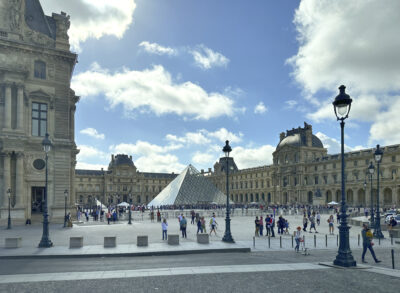
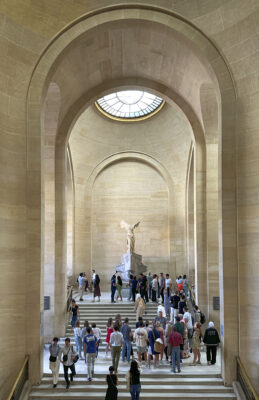
The Carrousel du Louvre is a modern underground shopping mall with chocolate shops, restaurants, souvenir stands, clothing stores, an Apple store, a Sephora, and a Mariage Freres Tea shop.
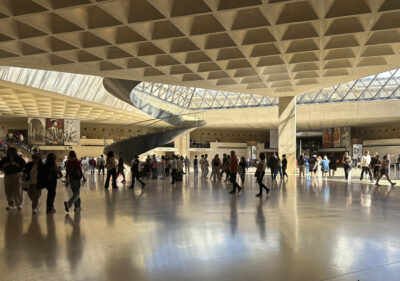
Most of the people in the photo below are not looking at the Mona Lisa. Their backs are toward the painting and they’re looking at their smart-phones while they take “selfies.” Soon Mona Lisa will have its own separate wing with timed-ticket admission. I wonder if anyone will visit the rest of the museum.
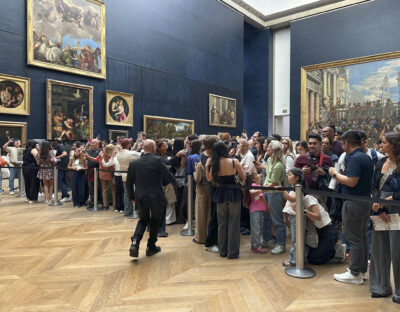
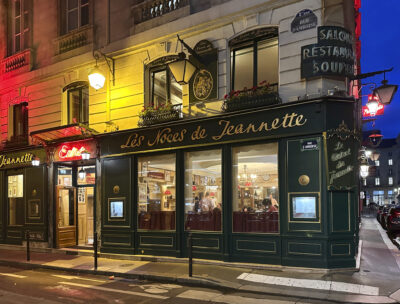
It had been raining lightly when we set out one evening to take a boat ride on the Seine River. Although it was cool and cloudy, the rain stopped long enough so we could enjoy a lovely night tour of the city.
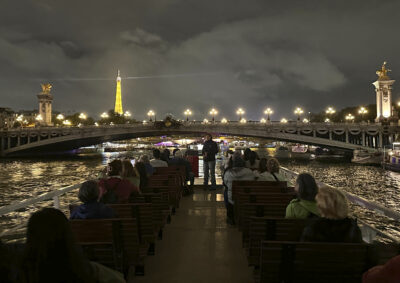
We visited Sacre-Coeur and afterwards walked around the Montmartre neighborhood. The artists and bohemians are long gone and have been replaced by tourist restaurants, souvenir shops, and upscale apartments.
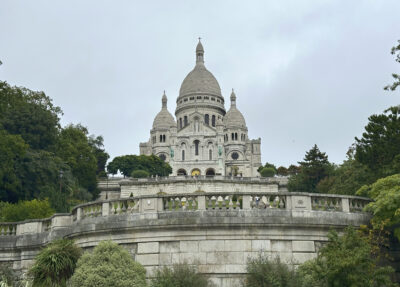
After a pleasant bus ride out of Paris, we arrived in the village of Giverny where Claude Monet lived and painted for the last 43 years of his life. The gardens are incredibly beautiful with a wide variety of flowering plants.
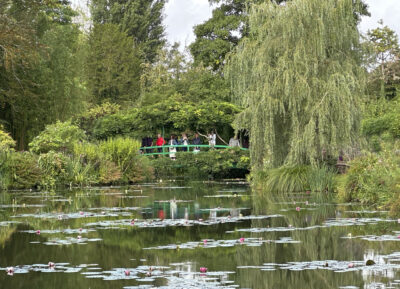
Monet’s house is a comfortable colorful French farmhouse decorated with Japanese prints and copies of the artist’s paintings.
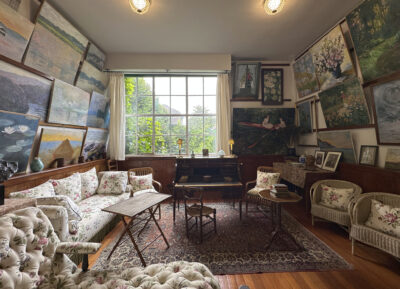
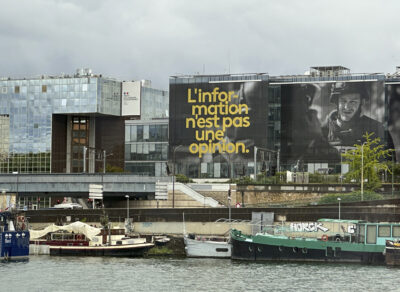
On Friday September 5th, the group left Paris to go to Rouen, which is the capital city of the region of Normandy. The cobblestone center of Rouen has many beautiful medieval half-timbered houses.
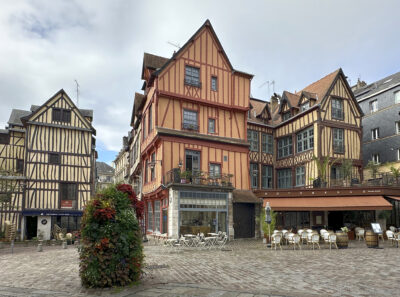
We saw the Gothic churches of Saint-Maclou and Saint-Ouen and nearby Roman ruins. The group visited the Eglise Sainte-Jeanne-d’Arc which is a modern church built on the site where she was martyred. Monet painted the Cathedral of Notre-Dame many times in different light.
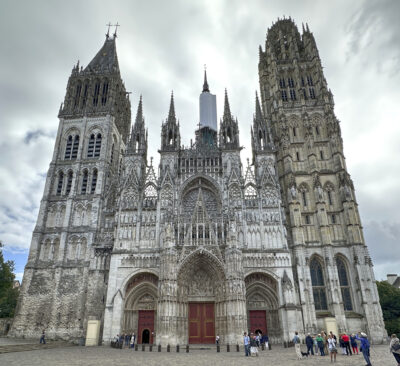
We continued on to the village of Honfleur which is known for its well-preserved medieval old port. Saint Catherine’s Church which was constructed by local shipbuilders dates from the 15th century.
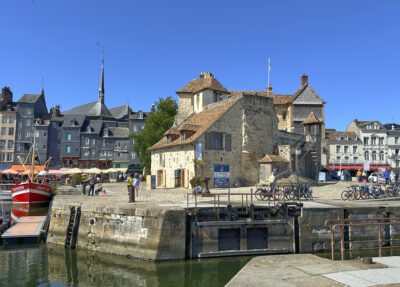
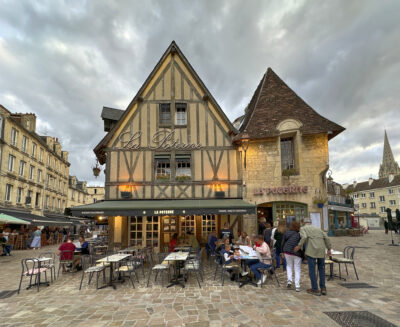
The group stayed for two nights in the Norman city of Caen which is known for its castle built by William the Conqueror in 1060. He was buried in Caen in 1087.
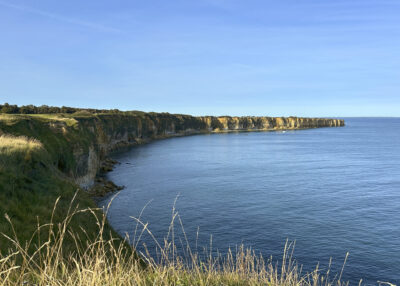
Normandy Beaches refer to the five sectors (Utah, Omaha, Gold, Juno, and Sword) where Allied forces landed on June 6,1944 during WWII. The beaches are historic landmarks and memorials to the invasion.
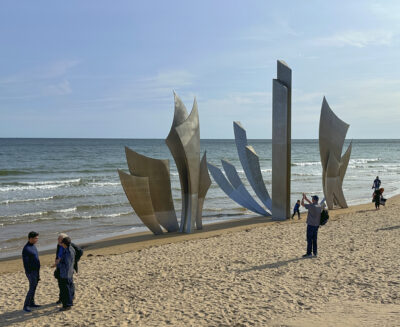
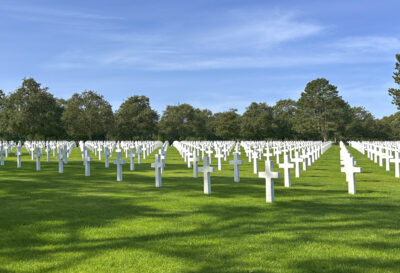
Arromanches is a sea-side village near where the Normandy landings took place. Today it is a sweet little tourist destination overlooking the beautiful expanse of beach and the English Channel.
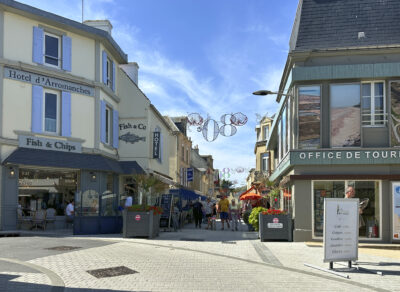
Mont Saint-Michel is a unique tidal island off the coast of Normandy. The entire island is comprised of a Roman Catholic abbey and about 60 buildings which house shops, restaurants, and hotels for tourists.
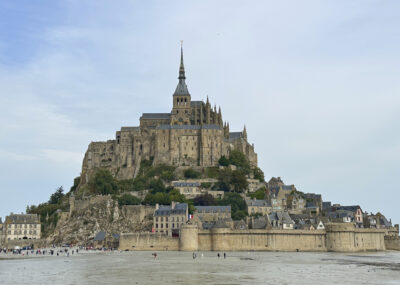
The last time I visited the island, 20 years ago, it was not very crowded. Today, there is a large parking lot on the mainland and a new bridge going out to the island. The narrow main street was very crowded.
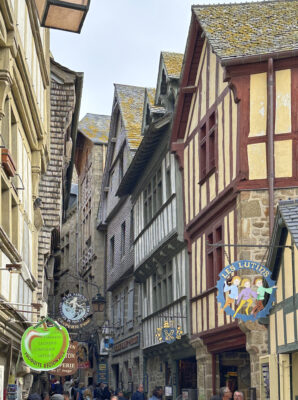
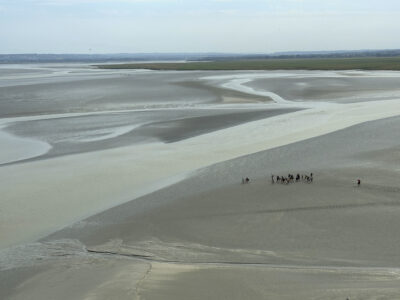
Saint-Malo is a walled medieval city located on the English Channel in the commune of Brittany. The old town is filled with charming, narrow cobble-stone streets and picturesque houses.
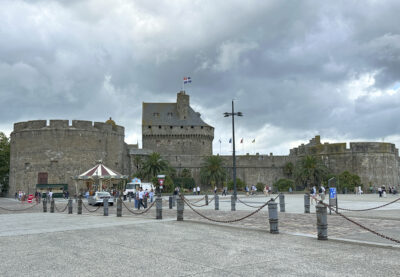
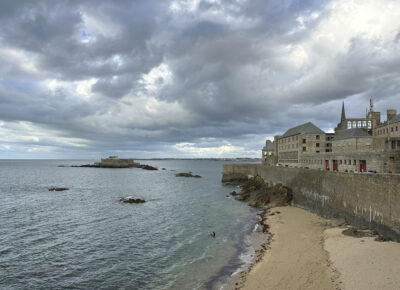
It was just a 3 1/2 hour drive from Caen back to Paris. We had time to visit the Rodin Museum in the afternoon. The beautiful 18th century building has as an excellent permanent exhibit of Auguste Rodin’s sculptures.
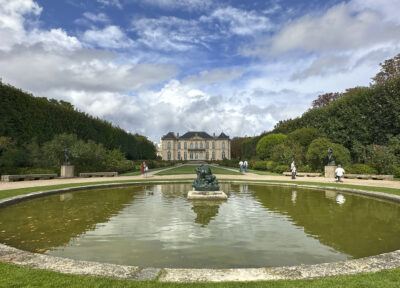
The Memorial to the Martyrs of the Deportation is a memorial to the 200,000 people who were deported from Vichy France to Nazi concentration camps during WWII.
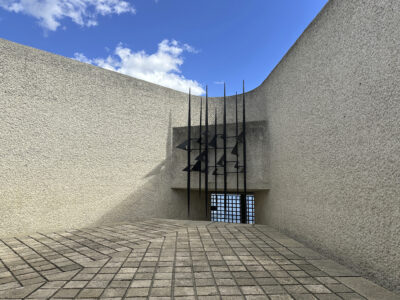
The Pantheon is a Neoclassical building that is a mausoleum for French national heroes. Some of the famous people who are entombed there are: Marie and Pierre Curie, Victor Hugo, Voltaire, Louis Braille, Josephine Baker, and Emile Zola.
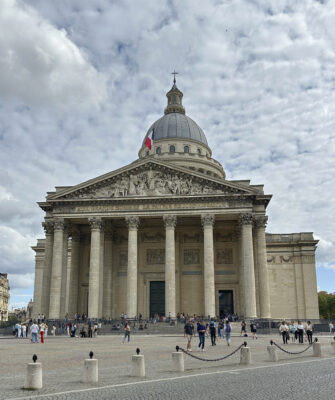
A Foucault Pendulum is suspended from the central dome of the Pantheon. This simple device provides a visible demonstration of Earth’s rotation.
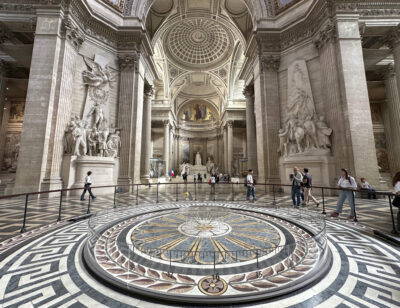
I could not take a good picture of the front of the Palais Garnier because it was covered with scaffolding. However, the interior was as impressive and magnificent as ever.
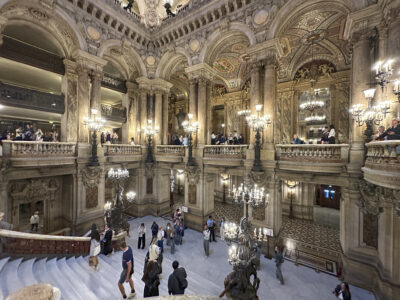
The Palais Garnier was built in 1875 for the Paris Opera. Since the opera company moved to a new building in 1989, the opulent Palais Garnier is used mainly for ballet performances. A guided tour is wonderful.
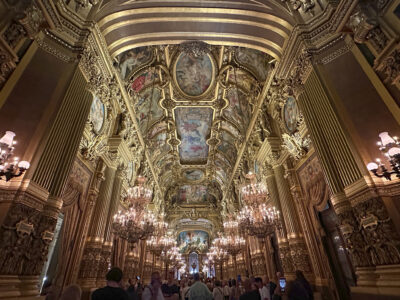
The Hotel des Invalides is a complex of buildings relating to the military history of France as well as a hospital and old soldiers’ retirement home. The Royal Chapel known as the Dome des Invalides contains the tomb of Napoleon.
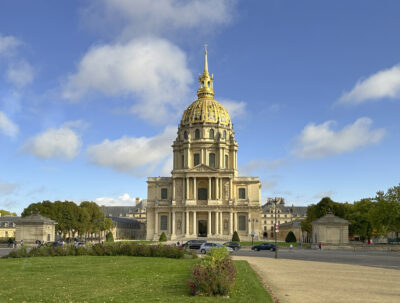
Our group also visited several department stores to see the beautiful interior spaces.
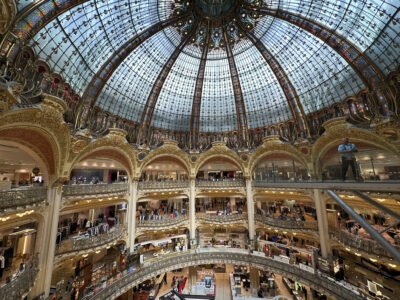
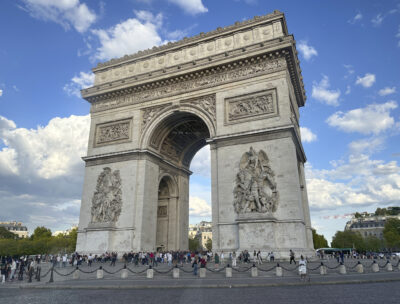
On Wednesday morning September 10th, the tour group returned home to New York. I stayed longer and had a few more days to myself. I switched back to my original little hotel because it’s located in the center of Paris.
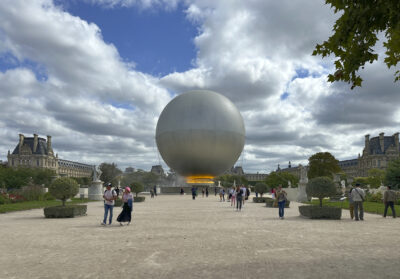
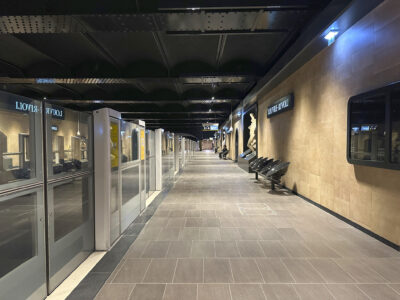
On my own again, I was able to see several more excellent small museums. One was the Musee des Arts de l’Asia de Ville de Paris. The museum was founded in 1898 by Henri Cernuschi. It had an amazing collection of ancient art from China, Japan, Korea, and Vietnam.
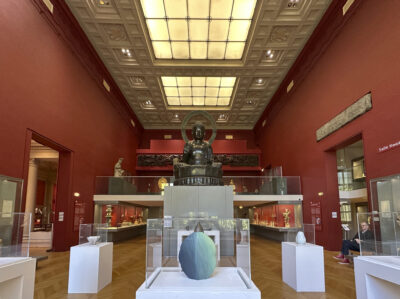
Another excellent museum was the Musee Marmottan Monet which has the largest collection of paintings by Claude Monet in the world. It also features works by Berte Morisot, Renoir, Manet, and other Impressionist artists. The museum also has a collection of beautiful Napoleonic-era furniture, paintings, and decorative objects.
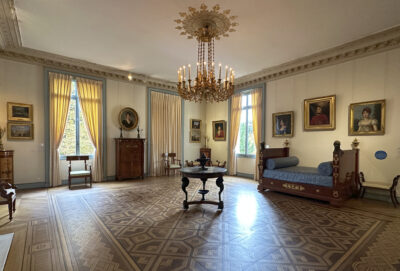
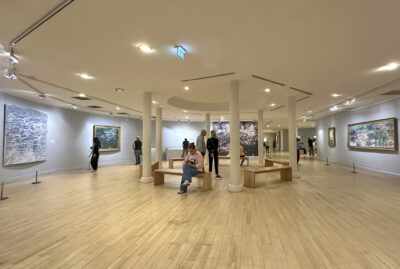
The Bourse de Commerce-Pinault Collection opened in 2021 as an exhibition space for contemporary art. The circular building from 1783 was originally used to store and sell wheat.
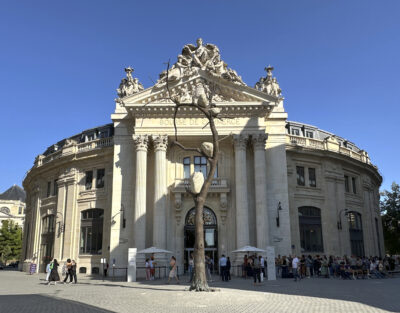
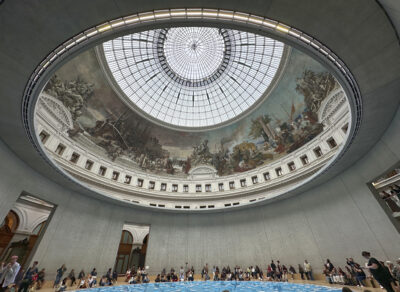
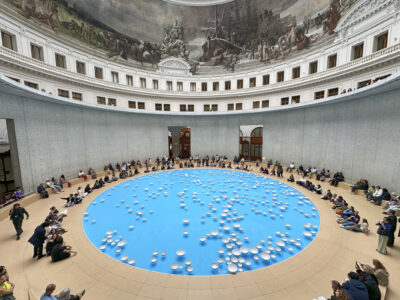
The Grand Palais is an exhibition hall and museum built for the Universal Exposition of 1900. Today it is used for contemporary art exhibits. I saw the Niki deSaint Phalle/Jean Tinguely exhibit.
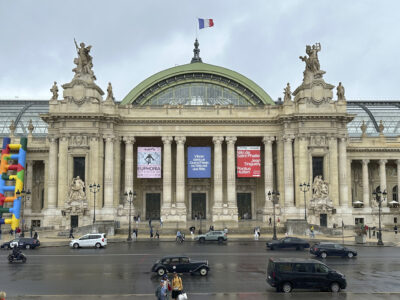
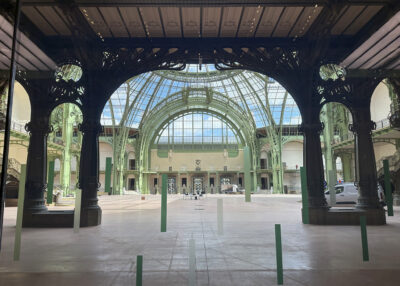
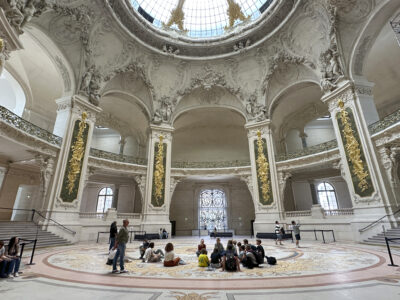
Paris is fabulous! It’s a wonderful city to visit and I love to walk around any time, day or night.
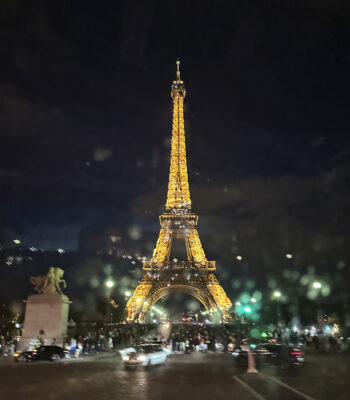
“Ahhh, We’ll always have Paris…..”